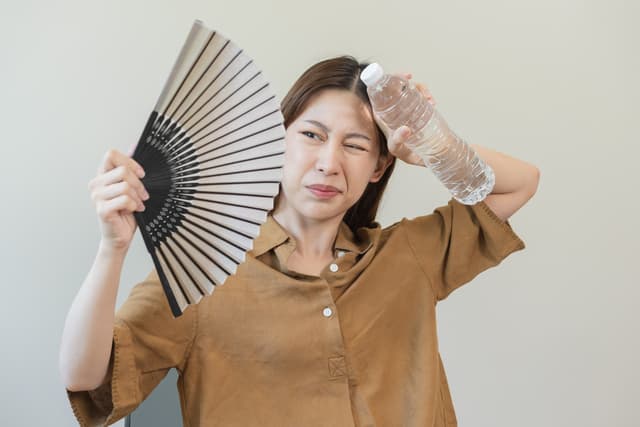I want to focus on Menopause and all the things that come along with this amazing season of your life. Good news is you CAN take control of your well being. Below are just a few of the most common things felt during this season of life. I discussed the importance of detoxification last month and it is crucial if you are perimenopausal or menopausal.
MOOD SWINGS: Anyone having these?! You know sometimes you feel like you are on an emotional roller coaster? Estrogen and progesterone, in particular, love to mess with your brain’s chemicals, like serotonin, which is our feel-good neurotransmitter. When these hormone levels go up and down, our moods go up and down. When you are riding this roller coaster, it worsens the hormonal changes you’re already experiencing.
Another hormone that we need to pay very close attention to is cortisol. This is your body’s main stress hormone, and is naturally produced in response to a perceived threat. When it’s out of balance, it is the main source of a large number of hormone-related issues, especially in perimenopause and menopause. When we are in a fight or flight situation, cortisol is released, raises our blood sugar levels so we have enough energy to run or fight, and it suppresses normal functions like digestion and reproduction so we can deal with the immediate threat and improve our immediate survival.
Once the threat has passed, the body reverses this whole cascade and the cortisol levels return to normal. The big problem is, many of us don’t return to balance. We function in a chronically stressed state and this hormonal axis is constantly turned on, which results in a ton of symptoms throughout your body: poor digestion,increased belly fat,PMS, moodiness, sugar and carb cravings, and sleep troubles to name a few.
WEIGHT GAIN: Feel like you are gaining weight for no reason?! Hormones are like the managers of our body’s metabolism and weight control. If your thyroid isn’t working enough, your metabolism can slow down, making you gain weight. Cortisol, the stress hormone we just discussed, can make you hungry and store fat, especially around the belly.
EXHAUSTION: Feeling tired all the time? If your thyroid is slacking off, or if you have an imbalance in sex hormones, you may feel exhausted all the time, always running on empty. Your body’s energy factory isn’t getting the right instructions from the hormones.
SLEEP DISTURBANCES: Do you have trouble falling asleep or staying asleep? I know I sure did! This is due in part because of changes in estrogen and progesterone. Progesterone is often referred to as the “feel-good hormone” and it’s a natural antidepressant that promotes calm,tranquility and sleep. When progesterone levels are low, or insufficient to balance out the effects of estrogen, you may have trouble relaxing and getting enough quality sleep.
LOW LIBIDO: Hormones are big players. Low testosterone can dial down libido in women. If estrogen and progesterone are out of whack, it can also affect drive. If your cortisol levels are all over the place, if you have thyroid issues, it can further impact your desire.
Can you relate? Are you feeling some or all of these things? I know I have. What I like to do with my clients is reframe menopause. You are in your “second act” of life and I encourage clients to embrace the fact that menopause means reinvention. With reproduction off your agenda and symptoms easing on the other side of menopause, this next phase of life offers the opportunity to focus on YOU!! During this “second act” it’s time we identify what truly brings you joy. A long time ago, when a woman’s life expectancy was much shorter, menopause may have occurred at the “end” of life. Now that we are living well into our eighties and beyond, menopause is truly midlife. This is your opportunity to spend the next few decades in a happier, more empowered way! Contact me and let’s explore the ways that I can help you feel your best self and ease the symptoms of menopause and balance everything out so you “feel like yourself” again. We will address all the issues I listed above and so many more. I practice bio-individuality, what that means is, there is not a one-size fits all approach to health and nutrition. We are all unique in our biological makeup and requirements.

